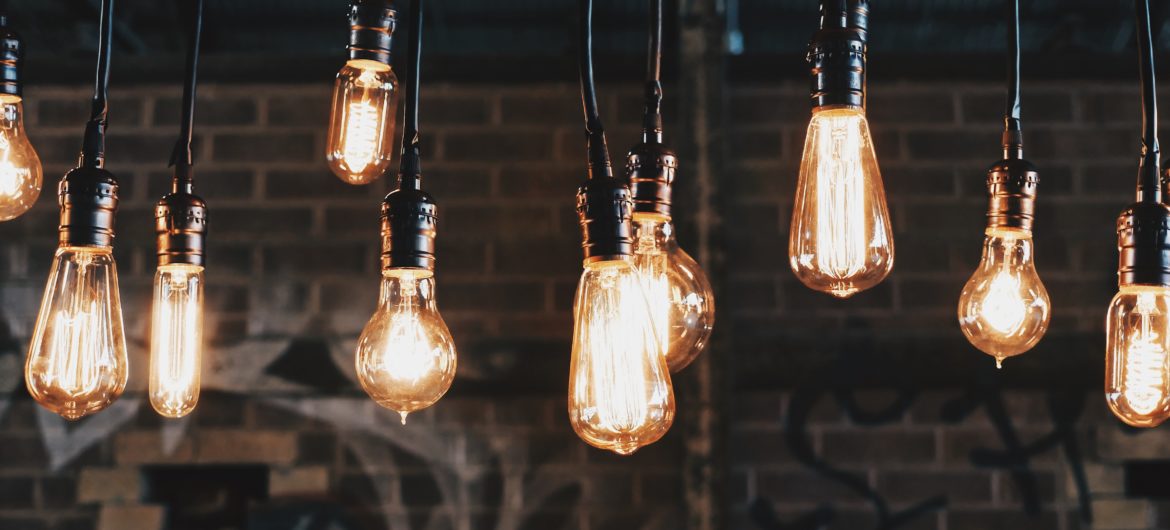We spend a lot of time in our homes and our surroundings contribute to our moods, emotions and even our daily behaviours.
Studies suggest that lighting effects numerous biological, mental, and emotional factors, even directly contributing to our mental well-being.
More than ever, people rely on their home environments to boost their moods and overall sense of well-being.
Interior and mental health specialists from Delamere Health have shared how lighting can contribute to our mood and productivity.
Lighting can increase our energy levels
Artificial lighting, particularly fluorescent light, commonly found in office buildings, can cause headaches and migraines. Findings from Leiden University Medical Centre in the Netherlands discovered that too much exposure to artificial light could negatively influence mental health. In addition, the effects of artificial light contributed to signs of fatigue.
Natural light is essential to your mental and physical health, and not getting enough sunlight can drastically reduce your energy levels and negatively influence work performance. For example, a recent study compared two groups of participants – one exposed to daylight and artificial light – throughout several workdays.
The research discovered that the participants’ energy levels and physical well-being exposed to artificial lighting were far worse in the afternoon compared to the people exposed to natural light.
Natural light can uplift the mood
The different kinds of light we’re exposed to throughout the day can have a real impact on our emotional health and wellbeing. Research indicates that a sufficient amount of light improves mood and energy levels, while poor lighting can contribute to symptoms of depression and other mental health deficiencies in the body.
Exposure to natural light helps our bodies produce Vitamin D, and the British Journal of Psychology discovered that individuals with higher levels are less likely to have depression. In addition, bringing sunlight into your home through a window or door can greatly impact how you feel throughout the day.
Research revealed that natural light helps our bodies stick to a natural circadian rhythm, which allows us to feel more energetic and improves our overall sense of wellbeing.
Affect our appetite
Did you know that lighting can have a major impact on your appetite? The lighting you incorporate throughout your dining and cooking space could be influencing your desire to eat.
Studies have found that lighting not only affects how much food we consume but how fast we eat, the types of food we desire and our perception of flavour.
Brightly lit interiors typically make you eat faster instead of dim lighting relaxing you and naturally making you eat at a slower rate. Researchers have found that softer lighting makes you less alert and more likely to eat at a leisurely pace.
Heightens positive and negative emotions
Today, more than 90% of our time is spent indoors. So some consideration should be given to the different kinds of light we are exposed to and what impact it has on our emotional health and wellbeing.
A recent study by the Journal of Consumer Psychology discovered that when lighting is more intense, it can result in feelings of positive emotions, but also negative too.
Bright light greatly affects human emotions, sometimes for the better and sometimes for the worse. For example, the study’s findings revealed why we feel uncomfortable in a brightly lit room and why we are more relaxed watching a movie when the lighting is dimmed.
Create a relaxing and calming environment
Your exposure to natural light can help your body synthesise essential vitamins, influence your mental well-being and emotions, and helps to regulate your sleep cycles. But it’s blues, greens and reds can create a more relaxing and calming environment.
Research shows that blue light accelerates the relaxation process after a stressful situation in comparison to white lighting. The study discovered that when individuals were immersed in blue light, they relaxed three times as quickly as white light.
A good night’s sleep is just as important as regular exercise and a healthy diet. Research from the University of Oxford found that the green light helps to promote sleep, which is one of the key ways our bodies relax.




